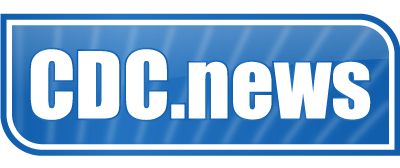
Pharmacist faces murder trial after his contaminated medicine kills 64 patients
Tuesday, January 17, 2017 by Vicki Batts
http://www.cdc.news/2017-01-17-pharmacist-faces-murder-trial-after-his-contaminated-medicine-kills-64-patients.html

In 2012, over 700 people across 20 different states were diagnosed with fungal meningitis and other infections after being given contaminated medication. This egregious error led to what was the most deadly outbreak of meningitis ever seen in the United States; 64 people died in nine different states.
Now, the trial is finally in motion. The prosecution says that a single pharmacist is responsible for at least 25 of those unfortunate deaths, and jurors will begin to weigh the evidence.
Pharmacist Barry Cadden is the 50-year old owner and head pharmacist of New England Compounding Center, known as NECC. He is being charged with 25 counts of second-degree murder in relation to the 2012 outbreak. These deaths were allegedly caused by contaminated bottles of a steroid known as preservative-free methylprednisolone acetate, which is manufactured by Cadden’s compounding pharmacy.
A second set of charges also await NECC’s supervisory pharmacist, Glenn A. Chin. Chin has been charged with 25 counts of second-degree murder, but his trial date has yet to be determined. According to the U.S. Attorney’s Office, a maximum sentence of life in prison is on the table for both Cadden and Chin, if they are convicted on all counts.
In 2014, the U.S. Justice Department acknowledged that the charges did “not require the government to prove Cadden and Chin had specific intent to kill the 25 patients, but rather that (they) acted with extreme indifference to human life.” The contaminated vials of methylprednisolone acetate were used on some 13,000 patients. It is truly a wonder that more people were not harmed by these pharmacists’ actions.
(Editor’s note: Isn’t it interesting that these same charges are never leveled against big-name pharmaceutical drug manufacturers whose products kill over 100,000 Americans each year? Bayer, Pfizer, Merck, Eli, J&J and other drug companies executives never face such criminal charges, even when caught fraudulently marketing dangerous prescription medications that kill thousands.)
The outbreak and the indictment
There are exactly 751 cases of infection listed on the indictment, after healthcare practitioners unknowingly injected the contaminated medication into thousands of their patients’ spinal columns.
Meningitis, which is the inflammation of the membranes surrounding the brain and spinal cord, is a life-threatening condition that was inevitably caused by the compromised medication. Fungal meningitis is considered to be a rare disease by the CDC.
In the fall of 2012, the first cases of infection were reported. That September, NECC voluntarily recalled three lots of the steroid medication. However, that was not the end of the story for the Framingham, Massachusetts-based company. CNN reports:
The next month, the Massachusetts Department of Public Health, working with the Food and Drug Administration, reported that it had “identified serious deficiencies and significant violations of pharmacy law and regulations that clearly placed the public’s health at risk.”
And, about a year after the company had filed for bankruptcy protection under Chapter 11, the owners of NECC conceded to creating a $100 million fund for the outbreak victims in late 2013.
In a misguided attempt at spreading the blame, the pharmaceutical company tried to implicate their cleaning company as having shared responsibility for the outbreak. The cleaning company, UniFirst Corp, acknowledged that they provided NECC with “once-a-month cleaning services,” but maintained that the compounding pharmacy’s claims were “without merit.” The contamination error has been consistently blamed solely on NECC and its sale and administration subsidiary, Medical Sales Management, as far as health officials are concerned.
Cadden’s 2014 indictment reveals charges for multiple counts of racketeering, conspiracy, aiding and abetting, and mail fraud. The document also alleges that NECC failed to comply with basic safety regulations regarding sterilization and cleaning, among other things, and that many people who worked there, including the owners and other pharmacists, actively lied about it.
Not the first time NECC was in trouble
The problems with NECC began many years before the fungal meningitis outbreak harmed hundreds of people nationwide. In 2006, NECC reportedly received a warning letter for their wrongdoings from the FDA. In this letter, the FDA notified NECC that there were several violations that needed to be corrected and that the federal agency had the right to “seizure and injunction against you and your firm.”
Natural News also reports that in 2012, the executive vice president of the International Academy of Compounding Pharmacists, David Miller, “condemned NECC for profiting to the tune of millions of dollars while functioning as a drug manufacturer, and not as a compounding pharmacy” on NPR’s Diane Rehm Show. Miller also noted that despite several visits to NECC and the issuance of warnings, the FDA failed to shut them down. The negligence of the FDA also played a role in this terrible outbreak, and they too should be held accountable for their failure.
Sources:
Tagged Under: Tags: Big Pharma, meningitis, pharmacists, TOP PRIORITY




